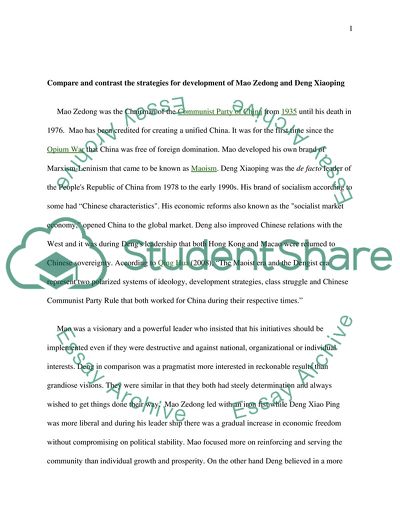Cite this document
(The Strategies for Development Of Mao Zedong and Deng Xiaoping Assignment, n.d.)
The Strategies for Development Of Mao Zedong and Deng Xiaoping Assignment. https://studentshare.org/politics/1719520-compare-and-contrast-the-strategies-for-developent-of-mao-zedong-and-deng-xiapeng
The Strategies for Development Of Mao Zedong and Deng Xiaoping Assignment. https://studentshare.org/politics/1719520-compare-and-contrast-the-strategies-for-developent-of-mao-zedong-and-deng-xiapeng
(The Strategies for Development Of Mao Zedong and Deng Xiaoping Assignment)
The Strategies for Development Of Mao Zedong and Deng Xiaoping Assignment. https://studentshare.org/politics/1719520-compare-and-contrast-the-strategies-for-developent-of-mao-zedong-and-deng-xiapeng.
The Strategies for Development Of Mao Zedong and Deng Xiaoping Assignment. https://studentshare.org/politics/1719520-compare-and-contrast-the-strategies-for-developent-of-mao-zedong-and-deng-xiapeng.
“The Strategies for Development Of Mao Zedong and Deng Xiaoping Assignment”. https://studentshare.org/politics/1719520-compare-and-contrast-the-strategies-for-developent-of-mao-zedong-and-deng-xiapeng.


